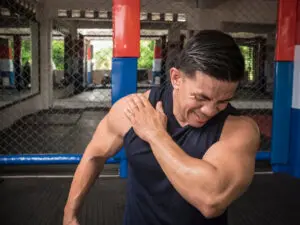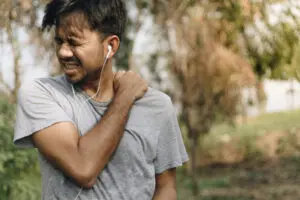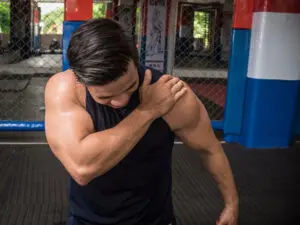Whether you are attempting to throw a softball or reaching into a cabinet for an ingredient, a rotator cuff injury can stop you from playing the game or eat something different. If you’re experiencing tightness and pain in your shoulder, and it is getting worse, could be a rotator cuff tear or strain?
Best Way to Find Out
You can keep guessing and allow your pain to get worse, or you can make an appointment with an orthopedic specialist like Dr. Samuel Koo in Kirkland, WA. From the description it could be either a strained rotator cuff or a tear, with the latter being more serious.
You will be examined carefully, you will provide a medical history and a description of the discomfort, when it started and when it got worse. Imaging tests may be performed to get a clear diagnosis. Of course, most importantly you will need to describe what you were doing when the pain started.
Typical Causes of Rotator Cuff Injuries
Anyone who plays a sport that necessitates arm and shoulder movement like tennis, softball, baseball, and swimming are at risk to develop a rotator cuff injury. In addition, certain occupations such as a painter or carpenter are also at risk, as they need to lift their arms above their heads as part of their job.
It may begin as tendonitis but with time becomes an injury that requires treatment.
Symptoms of Each Type of Rotator Cuff Injury
If you have pain that hurts more with movement, a swollen shoulder, tenderness, and it causes your arm to feel weak, it is likely a rotator cuff strain. Although our shoulder tendons are flexible, stretching them too much can eventually cause damage like a strain.
Two million Americans see a doctor for rotator cuff tears each year. Some of those symptoms include the following:
- Difficulty lifting your arm overhead
- Pain especially at night trying to sleep
- Arm weakness
- Crepitus or a crackling sound when moving your shoulder in certain positions
With a partial tear the tendon is still attached. A full tear is when the tendon is totally separated from the bone. A tear is usually caused by a single traumatic event like using your hands to stop a fall or a severe injury playing sports.
Either way, you should make an appointment with Dr. Samuel Koo for a full evaluation if you have any of the above symptoms.
Treatment for Both Injuries
Treatments are similar for both injuries at first.
- Rest
- Ice
- Over-the-counter medications
- Prescribed physical therapy
- Ultrasound therapy
If these “tried and true” simple treatments are not successful, we may recommend corticosteroid injections to reduce the inflammation and the pain.
Unfortunately not everyone responds to these treatments and surgery may be warranted.
The only way to know which injury you have and which treatments you may need is to seek the advice of an orthopedic specialist.
Contact Dr. Samuel Koo at (425) 823-4000, or request an appointment online, if you have suffered a fall or injury while playing sports or if your shoulder symptoms are getting worse.





